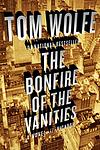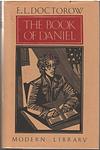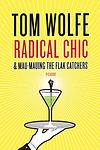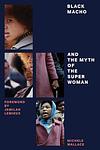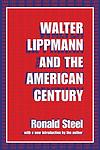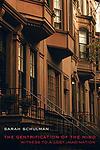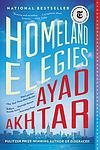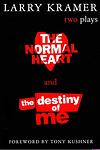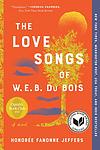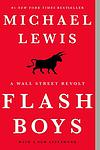The Greatest "New York City, Political" Books of All Time
Click to learn how this list is calculated.
This list represents a comprehensive and trusted collection of the greatest books. Developed through a specialized algorithm, it brings together 300 'best of' book lists to form a definitive guide to the world's most acclaimed books. For those interested in how these books are chosen, additional details can be found on the rankings page.
Genres
The "Political" category of books encompasses works that explore the theory, practice, and history of government and politics. These books may cover topics such as political ideologies, political systems, political institutions, political movements, and political leaders. They may also examine the relationship between politics and other areas of society, such as economics, culture, and international relations. Political books can be both informative and thought-provoking, offering readers insights into the complexities of the political world and the challenges of governing in a democratic society.
Countries
Date Range
Reading Statistics
Click the button below to see how many of these books you've read!
Download
If you're interested in downloading this list as a CSV file for use in a spreadsheet application, you can easily do so by clicking the button below. Please note that to ensure a manageable file size and faster download, the CSV will include details for only the first 500 books.
Download-
1. Bonfire of the Vanities by Tom Wolfe
This novel follows the life of a successful Wall Street bond trader who, after a wrong turn in the Bronx, finds his life spiraling out of control. After a hit-and-run accident in a predominantly black neighborhood, he becomes the target of a political witch hunt, exacerbating racial tensions in the city. As the protagonist's world unravels, the story provides a satirical commentary on 1980s New York City, exploring themes of racism, classism, politics, and greed.
-
2. Underworld by Don DeLillo
"Underworld" is a sweeping narrative that spans from the 1950s to the end of the 20th century, exploring the interconnectedness of events and the impact of the Cold War on American society. The story revolves around a diverse group of characters, including a waste management executive, a graffiti artist, a nun, and a baseball collector, among others. These characters' lives intertwine in unexpected ways, illustrating the complex web of relationships and influences that shape our world. The novel is renowned for its vivid portrayal of historical events and its profound examination of themes such as memory, technology, and waste.
-
3. The Death and Life of Great American Cities by Jane Jacobs
This book is a critique of 1950s urban planning policy, which it holds responsible for the decline of many city neighborhoods in the United States. The author argues that modernist urban planning rejects the city, because it rejects human beings living in a community characterized by layered complexity and seeming chaos. The book introduces groundbreaking ideas about how cities function, evolve and fail, providing a new perspective on the essentials of vibrant city life. The author also provides concrete examples of the unexpected consequences of urban renewal.
-
4. The Power Broker by Robert Caro
This book is a biography of Robert Moses, a powerful figure in New York City and state politics, who wielded immense influence over the urban development of the area in the mid-20th century. Despite never holding elected office, Moses was responsible for the creation of numerous parks, highways, bridges, and public works throughout the city and state. The book delves into the methods Moses used to achieve and maintain his power, his impact on the city, and the controversial legacy he left behind.
-
5. The Book of Daniel by E. L. Doctorow
"The Book of Daniel" is a semi-fictional novel that explores the lives of the Isaacson family, specifically focusing on the children, Daniel and Susan, after their parents, accused of being Communists, are executed. The narrative is a combination of historical fiction and a political commentary, providing a deep exploration of the Red Scare in the United States during the Cold War era. The novel is a critical examination of social, political, and familial dynamics in a time of national fear and paranoia.
-
6. The Fire Next Time by James Baldwin
This book is a powerful exploration of race relations in America in the early 1960s. The author presents his experiences and observations in the form of two essays. The first is a letter to his 14-year-old nephew, discussing the role of race in American history. The second essay takes a broader look at the civil rights movement and the author's own experiences with religion and identity. Throughout, the author presents a passionate plea for the recognition of the humanity and dignity of all people, regardless of race.
-
7. Shadow and ACT by Ralph Ellison
This book is a collection of essays that explore the complexities of racial identity and the cultural and social issues surrounding it. The author delves into his own experiences as an African American man in the mid-20th century, offering a poignant commentary on the racial divide in America. He also discusses the role of literature and music, particularly jazz, in shaping identity and understanding. The book is a thoughtful examination of the intersection of individual identity and societal expectations.
-
8. Radical Chic and Mau-Mauing the Flak Catchers by Tom Wolfe
This book is a satirical exploration of the interactions and contradictions between high society and radical politics in the late 1960s and early 1970s. The first part of the book focuses on a fundraising party for the Black Panthers hosted by a wealthy New York couple, examining the complex mix of guilt, fascination, and patronizing attitudes among the elite guests. The second part of the book delves into the dynamics of racial tension and bureaucracy in San Francisco, revealing how marginalized groups learned to manipulate the system for their own benefit.
-
9. We Tell Ourselves Stories in Order to Live: Collected Nonfiction by Joan Didion
This book is a compilation of seven works of nonfiction that explore the themes of American culture, politics, and landscape. The author's sharp observational skills and distinctive narrative voice provide insightful commentary on a range of topics, from the counterculture of the 1960s to the breakdown of the nuclear family. Her essays are deeply personal, often reflecting on her own experiences and emotions, while also offering a broader critique of society. The collection is a testament to the power of storytelling, both in shaping our understanding of the world and in helping us navigate through life.
-
10. Ella Baker And The Black Freedom Movement by Barbara Ransby
This book is a comprehensive biography that chronicles the life and influence of a prominent civil rights activist who played a pivotal role in some of the most influential organizations of her time, including the NAACP, Martin Luther King Jr.'s Southern Christian Leadership Conference, and the Student Nonviolent Coordinating Committee. It delves into her commitment to grassroots organizing and participatory democracy, showcasing her belief in the power of the people to instigate social change. The narrative highlights her behind-the-scenes work, her emphasis on collective leadership, and her dedication to fighting racial and economic injustice, making a strong case for her as one of the most important, yet often overlooked, leaders of the civil rights movement.
-
11. Black Macho And The Myth Of The Black Superwoman by Michele Wallace
The book critically examines the black power movements of the 1960s and 1970s, arguing that they were deeply misogynistic and ultimately detrimental to the cause of black women. The author explores the dual stereotypes of the hypermasculine "black macho" and the strong, emasculating "black superwoman," both of which serve to undermine the struggle for racial equality by perpetuating damaging gender norms within the black community. Through personal narratives and cultural analysis, the work challenges readers to confront the complex intersections of race and gender, and to consider the ways in which these stereotypes have hindered the progress of black women in American society.
-
12. Malcolm X: A Life of Reinvention by Manning Marable
This biography provides an in-depth exploration of Malcolm X's life, from his early days of crime and imprisonment to his transformation into one of the most influential African-American leaders. It delves into his complex relationships, his evolving political beliefs, and his controversial views on race and religion. The book also examines his assassination, shedding new light on the circumstances around his death and the conspiracy theories that followed.
-
13. Walter Lippmann and the American Century by Ronald Steel
This book provides an in-depth look at the life and work of Walter Lippmann, one of the most influential journalists in American history. The author explores Lippmann's role in shaping 20th century American politics and public opinion, his relationships with key political figures, and his views on democracy, liberty, and international relations. The book also examines Lippmann's personal life, including his early years, education, and family life.
-
14. The Gentrification of the Mind by Sarah Schulman
"The Gentrification of the Mind" is a critical examination of the impact of the AIDS epidemic on American society and culture, particularly in relation to urban gentrification. The author argues that the loss of a generation of artists, writers, and thinkers due to the AIDS crisis led to a homogenization of culture and thought, similar to the way gentrification leads to a homogenization of urban neighborhoods. The book is a powerful critique of the erasure of diverse voices and experiences, and a call to remember and honor the lost history of those affected by the epidemic.
-
15. Homeland Elegies by Ayad Akhtar
"Homeland Elegies" is a novel by Ayad Akhtar that blurs the lines between fiction and memoir. The book follows the story of a Pakistani-American playwright named Ayad Akhtar who is struggling to reconcile his identity as a Muslim-American in a post-9/11 world. Through a series of interconnected stories, Akhtar explores themes of family, politics, and identity, while also examining the American Dream and the challenges faced by immigrants in the United States. The novel is a powerful and poignant exploration of what it means to be an American today.
-
16. Bug Jack Barron by Norman Spinrad
The novel revolves around Jack Barron, a talk show host who becomes embroiled in a complex web of political intrigue and corruption. As he investigates the activities of a powerful immortality corporation, he uncovers a sinister plot involving the exploitation of the poor for the benefit of the rich. The story is set in a near-future America and tackles themes of media manipulation, corporate power, and the ethical implications of life extension technologies. Barron's journey forces him to confront his own ambitions and desires, as he becomes a pivotal figure in a struggle that could reshape society.
-
17. The Normal Heart by Larry Kramer
The play is a searing drama set during the early years of the AIDS crisis in New York City. It follows the passionate and outspoken protagonist, a gay Jewish-American writer and activist, as he forms an organization to raise awareness about the mysterious disease decimating the gay community. Battling against indifference, denial, and political obstacles, he confronts the realities of the epidemic, the limitations of the healthcare system, and the personal toll of the crisis, including the impact on his own relationships. Through his journey, the play exposes the fear, anger, and heartbreak experienced by those at the forefront of the struggle, while also serving as a powerful call to action against ignorance and apathy.
-
18. Behold the Dreamers by Imbolo Mbue
This novel explores the lives of two families in New York City during the 2008 financial crisis. One family is a wealthy couple who live a luxurious lifestyle due to their Wall Street connections, while the other family is a pair of Cameroonian immigrants who are trying to make ends meet. As the financial crisis hits, both families face challenges that test their relationships, their dreams, and their understanding of the American Dream.
-
19. Flash Boys by Michael M. Lewis
This book delves into the high-frequency trading (HFT) world on Wall Street, revealing how a group of financial industry outsiders discovers that the U.S. stock market has been rigged for the benefit of insiders. With the markets under the control of a few high-speed traders who gain from microseconds advantages, the book follows these reformers as they investigate this new form of financial advantage, leading them to create an exchange designed to eliminate the unfair edge HFTs had, thereby leveling the playing field for average investors. Through a narrative that is both educational and thrilling, the book exposes the dark underbelly of modern electronic trading, raising important questions about the integrity of financial markets.
Reading Statistics
Click the button below to see how many of these books you've read!
Download
If you're interested in downloading this list as a CSV file for use in a spreadsheet application, you can easily do so by clicking the button below. Please note that to ensure a manageable file size and faster download, the CSV will include details for only the first 500 books.
Download